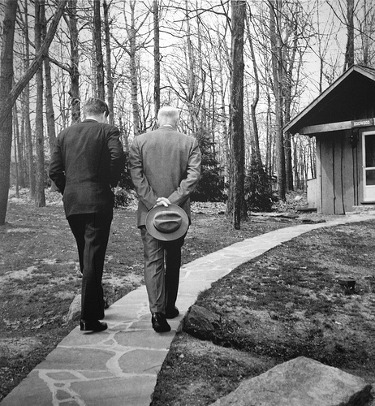A recent study by business administration professor Edward D. Hess analyzed the leadership of the most successful American corporations, such as The Home Depot, Best Buy, UPS, Ritz Carlton, Whole Foods, and Starbucks. Popular television programs like “Mad Men” and “House of Cards” tend to portray leaders as commanding, well-educated and ruthless in the pursuit of their personal and professional goals.
After researching the heads of these corporations, Hess found that the characteristics of successful corporate leaders belied the fictional portrayals of their counterparts. Instead, these leaders embodied what is known as the “servant leader.” Originally coined by Robert K. Greenleaf in 1970, the “‘servant leader’ focuses primarily on the growth and well-being of people and the communities to which they belong…the servant leader shares power, puts the needs of others first and helps people develop and perform as highly as possible.”
The humble servant leader is not only focused on the success of their organization, but also the overall well-being of society. Adopting the mentality of a servant leader means embodying the spirit of philanthropy in all personal and professional endeavors, by concerning themselves with the needs of the less able and cultivating a better society from the office outward.
Related articles
- Develop a generous organizational culture, reap far-reaching rewards (Philanthropy in AAction)
- Servant leadership: A path to high performance (Washington Post)
- Nine qualities of the servant leader (Skip Prichard)
Photo courtesy Flickr
